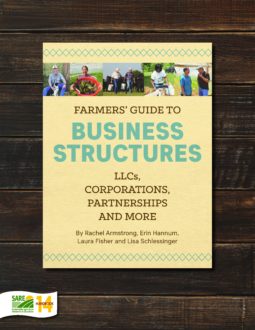While forming a formal entity, such as a C corporation, LLC, cooperative, or nonprofit, or electing S corporation tax status can take time and money and require certain formalities, these efforts come with privileges. The most significant benefit of a formal business entity is that the owners’ personal assets are protected from the business’s liabilities. This means that if the business incurs debt and is not able to pay its bills, or if it is sued for some wrongdoing, the owners’ personal assets–such as vacation homes, land, boats, wages, individual bank accounts, etc.–cannot be touched by creditors or the courts to pay off the business’s debts. Formal business entities offer business owners a sense of relief. Basically, their risk is limited to the amount that they invested in the company. No more, no less.
With that said, the business entity must abide by certain formalities to maintain this protection. This includes keeping the business’s financial affairs separate from the owners’ individual affairs, namely by keeping separate bank accounts and accounting systems. In addition, the owners must ensure that the business is adequately capitalized, which means that the business can’t recklessly spend money and live extravagantly outside its means in hopes that the owners will be protected. Such conduct undermines the integrity of the business entity and, in effect, the courts could use the owners’ personal assets to cover the business’s liabilities.
Another benefit of having a formal business entity is that the formalities themselves actually promote good business practices. For example, by having separate bank accounts, the business may maintain more accurate and diligent accounting, which may save money and identify opportunities for expansion. In addition, a well-thought-out organizing agreement will foster better communication and understanding as everyone will share similar expectations even through challenging times.
A formal business entity can help a business raise funds from outside investors. This includes obtaining loans from banking institutions as well as seeking investments from wealthy individuals like venture capitalists and angel investors. Institutions and investors often prefer a stable entity that carries legal protections. In addition, the formal business structure assures them that the owners are operating the business with integrity, and thus their funding support will be taken seriously and is less likely to be frittered away. Farm owners who anticipate needing a significant amount of funding from the outside should consider this factor when deciding which business entity is right for their goals.
On the other hand, traditional farm lenders such as the USDA Farm Service Agency may occasionally raise concerns about farm businesses organized as LLCs or corporations. These concerns can usually be resolved by working with the lender to show the entity reflects the same fundamental organization as the sole proprietorship or general partnership with the additional benefits of a formal entity.
Finally, a formal business entity can ease the transition process of the farm operation. Succession planning is a huge issue that farmers face. Having a formal business entity provides the opportunity to set clear ground rules and processes for how the transition will take place. A formal entity creates a useful way to transfer the business as a whole rather than individual assets. It can also provide more favorable tax benefits. For example, if the farmland is placed in ownership of a formal business entity such as an LLC or a C corporation, it may be insulated from higher estate taxes if the heirs are properly named as owners of the entity itself.
